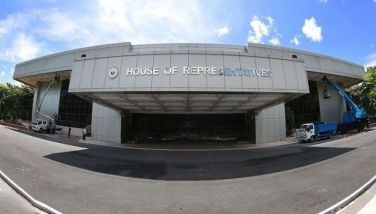Philippines to benefit from global trade redirection
MANILA, Philippines — The Philippines is likely to benefit from global trade redirection and relocation of production sites as a result of the coronavirus pandemic and the still unresolved trade spat between the US and China, according to Bangko Sentral ng Pilipinas (BSP) Governor Benjamin Diokno.
In a text message to reporters, Diokno said the US-China trade tension and the pandemic could have a positive impact on the Philippine economy in the long run.
“Both events have prompted a reevaluation across countries of the existing global supply, with firms possibly moving toward reducing dependence on any single country,” Diokno said.
The BSP chief said the current wave of revamping of global supply chains opens a window of opportunity for the Philippines to benefit from trade redirection and relocation of production sites.
“While the Philippines has been recognized as one of the top investment destinations pre-pandemic, the Executive, Congress, and the private sector have to unceasingly do more to further boost the country’s attractiveness to foreign investors,” he said.
Diokno said both the US and China are the country’s major export destinations and import sources. The country’s combined bilateral trade with these two economies accounts for more than 25 percent of total exports and imports.
“However even in the context of retaliatory tariffs between the US and China, the country’s exports have remained broadly stable,” he said.
According to the Philippine Statistics Authority (PSA), the electronics sector, which account for more than half of the country’s total exports, continued to perform well in 2019, notwithstanding the sector’s link with global production networks.
“This phenomenon can be attributed to the Philippines’ low exposure to products targeted directly by US tariff actions against China,” Diokno said, adding that the exposure is estimated at a low of 0.5 percent.
Not surprisingly, the BSP chief said the Philippines is among the least affected countries by the US-China trade tensions.
In fact, the International Monetary Fund (IMF) believes the Philippines has not been affected by the trade tension between Washington and Beijing.
“This supports IMF’s view that the country’s low participation in global trade as well as in global value chains relative-to-peers seems to explain why the Philippines has not been negatively impacted by the US-China trade war. In the long run, the escalation of the US-China trade war and the coronavirus pandemic could have a positive impact on the Philippine economy,” Diokno said.
Due to the economic fallout from the pandemic, economic managers, through the Development Budget Coordination Committee (DBCC), now expects the country’s gross domestic product (GDP) to contract by two to 3.4 percent this year, ending 21 straight years of positive growth.
- Latest
- Trending




























